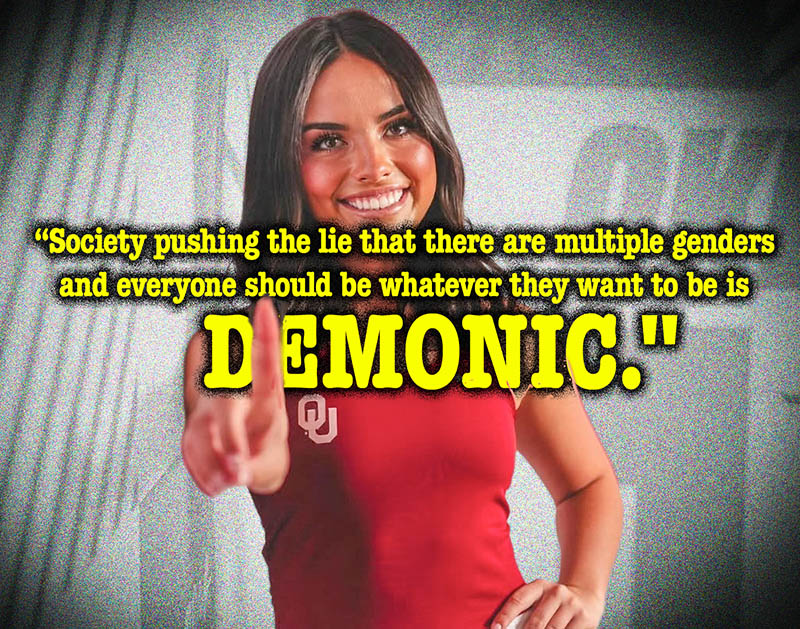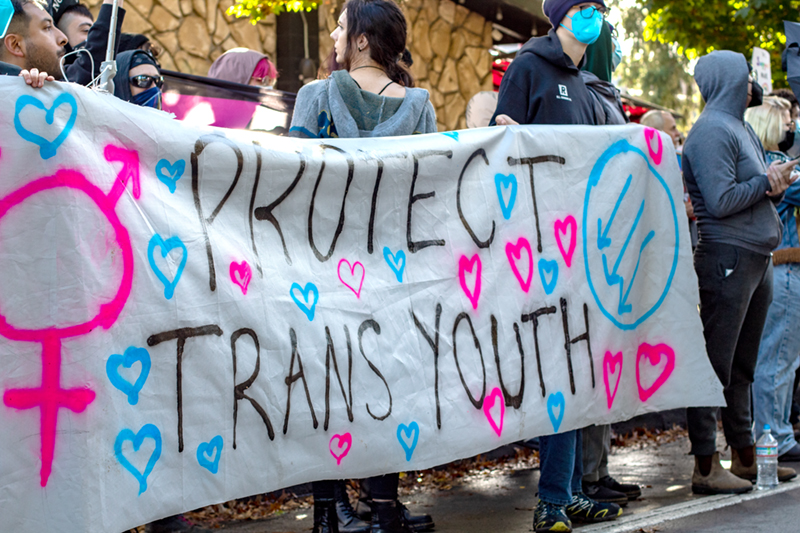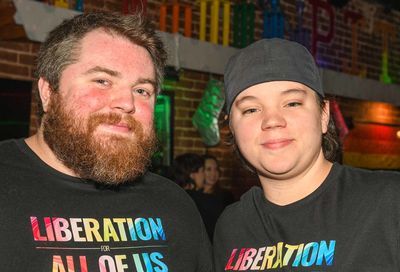Anti-gay religious exemptions in adoptive and foster care harm children and cost money
Report shows landscape for same-sex couples wishing to adopt can be "bleak" in states with religious exemptions

A recent report finds that allowing adoptive and foster care agencies to discriminate based on religious objections can harm children and ultimately cost taxpayers more money when those children are left in the custody of the state.
The analysis from the Center for American Progress, Voice for Adoption, and the North American Council on Adoptable Children examined the websites of various child placement agencies in Michigan and Texas, looking at whether they have policies that are LGBTQ-inclusive or claim some type of faith-based exemption or mission statement.
The report describes how religious exemption laws, as well as a lack of laws prohibiting discrimination against LGBTQ people and same-sex couples, can prioritize the religious beliefs of agencies over the wellbeing and best interests of the children in their care.
Currently, there are 10 states — Michigan, Texas, Virginia, North Dakota, South Dakota, South Carolina, Alabama, Mississippi, Kansas, and Oklahoma — that allow so-called “conscience clause exemptions,” which allow child placement agencies to refuse to place children with families or prospective parents that administrators find objectionable.
Those objections can be based on any number of characteristics, including a couple’s religion, age, past marital history, and sexual orientation.
As a result, the landscape for same-sex couples in those states who wish to adopt or serve as foster parents can be “bleak,” according to Frank J. Bewkes, the lead author of the report and a policy analyst for the LGBT Research and Communications Project at the Center for American Progress.
“I think our analysis is really useful in informing people about what the landscape looks like out there. When a prospective LGBTQ parent is starting that journey, most likely their first step is going to be hopping on Google and looking for some agencies,” Bewkes says. “Our analysis of whether they have nondiscrimination policies, whether those policies are inclusive, and whether those websites mention faith, informs what prospective parents are stepping into when they do that Google search.”
In Texas, only 10% of child placement agency websites explicitly show a willingness to work with same-sex couples, either with an explicitly LGBTQ-inclusive policy or mentioning LGBTQ people in a positive light. In Michigan, the percentage was higher, at 27%, but still dismally low.
Additionally, agencies with inclusive policies may not be dispersed evenly throughout states, with Texas serving as the most dramatic example, where in three of the state’s most 10 populous cities, there is no agency within the greater metro region with an LGBTQ-inclusive nondiscrimination policy. For example, in El Paso, all of the local child placement agencies either have a non-inclusive policy or fail to provide any information about their policy on their websites.
“We mapped out where agencies in Texas with inclusive policies are, and that map really tells a story,” notes Bewkes. “They’re really far apart. So it does create some access issues for LGBTQ parents. So someone in El Paso might have to drive nearly 350 miles away to Lubbock to get to the nearest agency with an explicitly inclusive policy on its website.”
Bewkes says it’s important for agencies to be explicit about their practices, especially in the current climate where the debate over religious exemptions for adoption and foster care agencies have garnered headlines.
“It really does have an effect on people,” he says. “In another study, we found that 17% of LGBTQ people actually avoided seeking services that they or their families needed, just to avoid discrimination. And a prospective parent may be discouraged if they do not see anything that indicates they will not be discriminated against.
“The point of the report is not to say these agencies will discriminate, it’s more that if they don’t see a policy explicitly saying that they do or don’t discriminate, they may assume the worst,” Bewkes adds. “They are then going to remove themselves from the pool of qualified parents, which means fewer families in which to place foster youth.”
The analysis also examines the financial cost of religious exemptions, finding that each child adopted from foster care saves taxpayers almost $29,000 per child per year, compared to those who remain in custody of the state. Moving just 1,000 10-year-olds from long-term foster care into adoptive homes would save taxpayers about $230 million over the eight years it takes for children in foster care to age out of the system.
Bewkes notes that LGBTQ opponents appear to be “ramping up” for a large-scale push to pass similar laws in the near future.
“We do expect more religious refusal bills to be introduced in 2019, so we’re hoping to use this report to push back against those, we’re hoping to use this report in the ongoing legislation challenging these laws, and we’re hoping for a good decision in the 3rd Circuit,” he says, referring to a legal challenge by religious child agencies against the city of Philadelphia’s policy that prospective parents should not be discriminated against based on their sexual orientation.
“Our opponents have decided that child welfare is going to be one of the next fronts in the fight for LGBTQ equality,” Bewkes says. “I think that’s unfortunate, because children in foster care are some of the most vulnerable members of our society, and this really does harm them.”
Support Metro Weekly’s Journalism
These are challenging times for news organizations. And yet it’s crucial we stay active and provide vital resources and information to both our local readers and the world. So won’t you please take a moment and consider supporting Metro Weekly with a membership? For as little as $5 a month, you can help ensure Metro Weekly magazine and MetroWeekly.com remain free, viable resources as we provide the best, most diverse, culturally-resonant LGBTQ coverage in both the D.C. region and around the world. Memberships come with exclusive perks and discounts, your own personal digital delivery of each week’s magazine (and an archive), access to our Member's Lounge when it launches this fall, and exclusive members-only items like Metro Weekly Membership Mugs and Tote Bags! Check out all our membership levels here and please join us today!


























You must be logged in to post a comment.